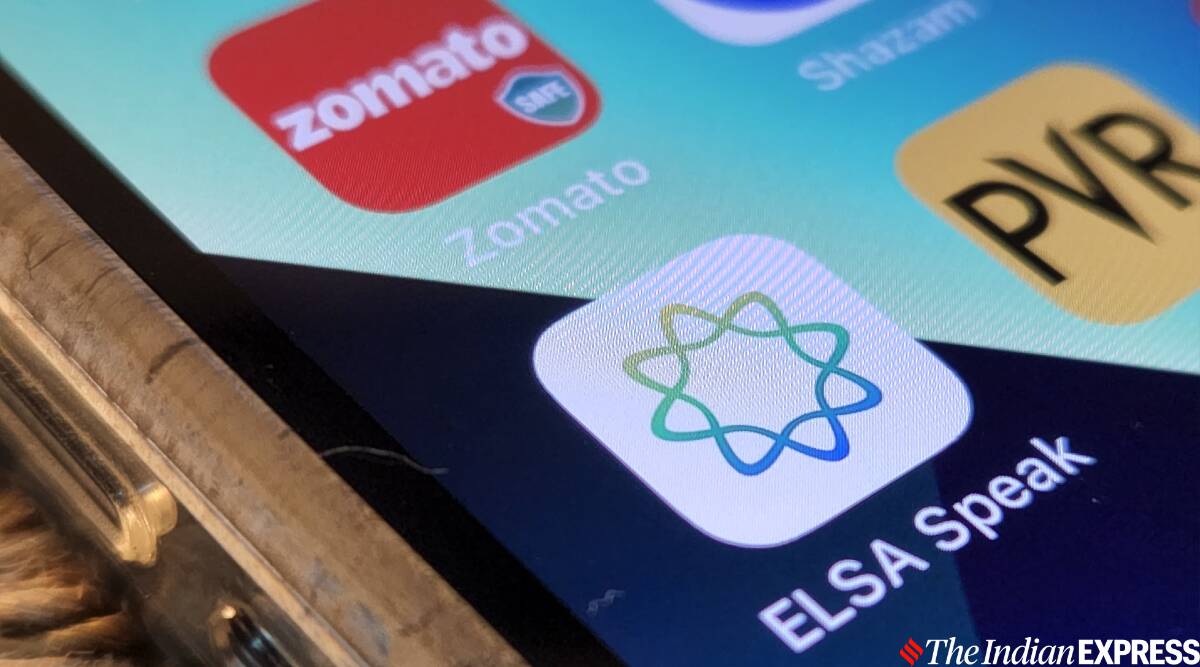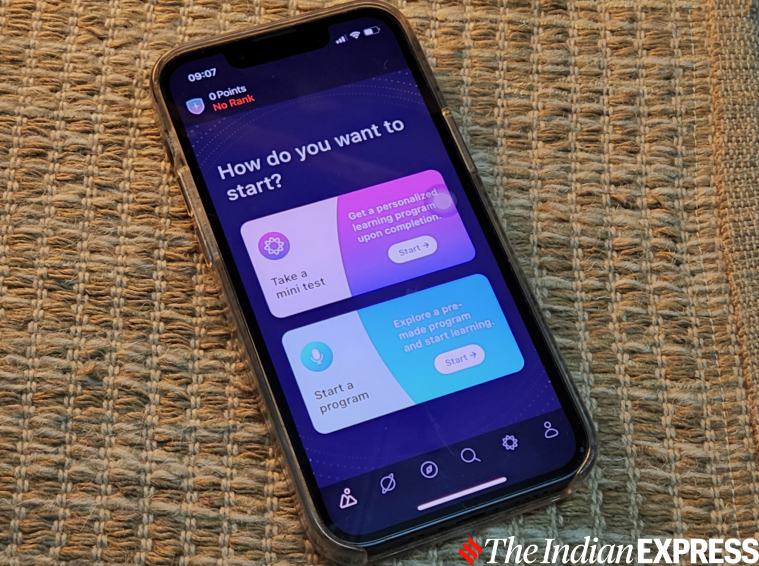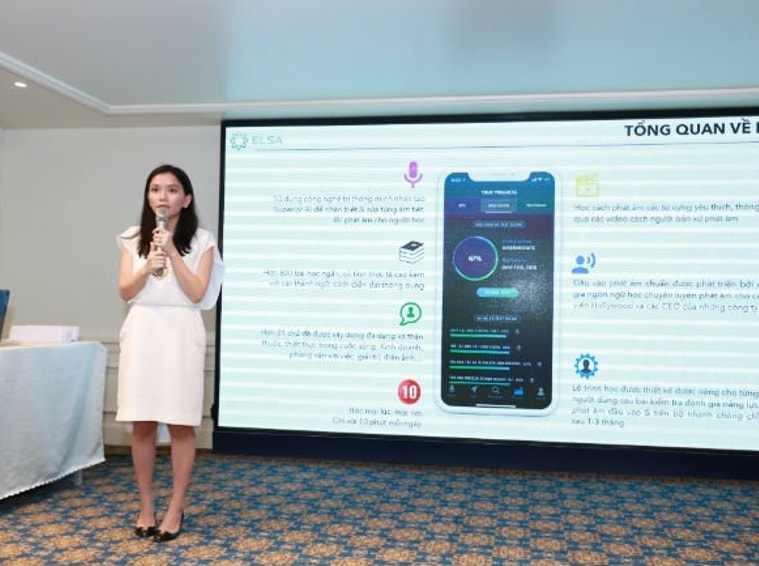AI language models could help diagnose schizophrenia
SOURCE: HTTPS://WWW.SCIENCEDAILY.COM/
OCT 09, 2023
ELSA, the English language app that speaks for non-native users
SOURCE: INDIANEXPRESS.COM
MAR 06, 2022

“The ability to practice and keep repeating, hearing back and training yourself, that is one really strong point of what this app can do,” Vaibhav Anand, India Country Manager, ELSA explains how his product is better than YouTube videos or online tutors when it comes to learning languages.
Based in San Francisco and Ho Chi Minh City, ELSA or English Language Speech Assistant, helps non-native English language learners improve their speech and correct pronunciation through simple, short app-based lessons. “There is no bias attributed from the learner’s point of view,” says Anand, adding that the custom AI is built from scratch keeping the target audience in mind.
Anand, who has worked with Manipal Education Group and Linkedin in the past, says ELSA works differently from any other English learning app because it is designed in such a way that it makes it easy for a user to speak the language and practice regularly. “It [ELSA] recognises what you are speaking at the lowest common denominator. Every single sound that you are articulating on the app gets recorded, analysed, and then you get pinpoint feedback as to what are the areas that you are strong in and where you need improvement,” he says.
In 2015, the Google-backed ELSA was founded by Vu Van, a Vietnamese national who struggled to speak English fluently. It was a major concern for her at Stanford University, and then later in her management consulting work. Van realised she wasn’t alone facing the issue and a lot of non-native English speakers lack the self-confidence to speak English despite the technical know-how.

The ELSA app has over 3 million users in India. (Image credit: Anuj Bhatia/Indian Express)
ELSA was born because Vu saw the opportunity to address the common problem faced by millions through a tech-enabled solution that came into place after Vu met Xavier Anguera, a renowned speech scientist, who is now the co-founder and Chief Technology Officer (CTO) of ELSA.
ELSA has over 25 million users across the world, 3 million of them in India, which is where Anand and his team want to focus on and grow. English remains the language of aspiration in India, as it opens economic opportunities for millions of people who are either planning to study abroad or need jobs where English language proficiency is critical. Anand claims the company has the largest amount of non-English speaking voice samples of users in the world.
The app, which is available on the Google Play Store and Apple App Store, gives you instant feedback based on your recordings, including feedback on mistakes and how to improve. It offers four-lesson types — listening, syllable stress, word pronunciation and dialogue, covering 40 topics and 1600 lessons. Once you download the app, you have to take a 5-minute assessment test which identifies the user’s pronunciation proficiency and checks the level. This then can be used to build out a personalised curriculum, tailored to the user’s current abilities.
On average users spend close to 14 to 15 minutes on ELSA, which makes it one among the top 10 apps in terms of engagement in the ed-tech space. For Anand, what draws users to use the ELSA app to learn English and improve their pronunciation over attending in-person classes is a more streamlined approach to learning. “Speaking is a skill that you need to keep practicing and getting feedback is important, and the ELSA app can do that perfectly,” he says, contrasting it with classroom learning where the batch size is large and getting individual attendance is difficult.

ELSA CEO and co-founder Vu Van. (Image credit: Elsaspeak.net)
“In comparison to a 40-hour intervention in a classroom-based program, on ELSA, it’s actually half of that you spend about 15 to 18 hours in the upper level, because it is dedicated to you and focusing purely on the areas that you need to improve on,” says Anand, explaining the adaptive nature of the app which curates the content based on the progress you have been making.
There are two aspects to the ELSA app — speech recognition and curriculum design. For speech recognition, which is done in-house and led by Anguera, the team works on training AI, understanding the accents and the dialect. The other team consists of curriculum and content experts. According to Anand, the content is designed keeping the Common European Framework of References for Languages (CEFR), an international standard for describing language ability.
ELSA generates money through subscriptions. The AI-powered English pronunciation app has a free and paid version, the latter costs Rs 3,599 for a year or Rs 1,999 a quarter. Although ELSA may seem like a B2C app which it is, the long-term goal is to focus on acquiring B2B customers. Anand wants to tap into universities and colleges as well as get enterprise customers to grow the user base of the app in India. In fact, ELSA already has over 10 enterprise customers in the country, though Anand refused to name them.
For enterprise customers, Anand said they are talking to multiple clients in order to understand how they can customise the app and make it fit for a particular use case. The company already works with a major airline in South East Asia for which it has created a module, primarily for its cabin crew. A similar tie-up is planned with an airline in India, though details have been kept under wraps for now.
ELSA is backed by Google’s AI-focused Gradient Ventures fund, SOSV, Monk’s Hill Ventures, along with Endeavor Catalyst, Globant Ventures and U2’s The Edge (David Evans). Last year, it raised a $15 million Series B, led by VI (Vietnam Investments) Group and SIG. So far, ELSA has raised over $28 million. The company plans to raise more funds in the future as it sees growth opportunities in International markets and wants to scale the product geared towards B2B customers.
LATEST NEWS
WHAT'S TRENDING


Data Science
5 Imaginative Data Science Projects That Can Make Your Portfolio Stand Out
OCT 05, 2022

SOURCE: HTTPS://WWW.SCIENCEDAILY.COM/
OCT 09, 2023
SOURCE: HTTPS://WWW.THEROBOTREPORT.COM/
SEP 30, 2023
SOURCE: HTTPS://WWW.SCIENCEDAILY.COM/
AUG 08, 2023
SOURCE: HOUSTON.INNOVATIONMAP.COM
OCT 03, 2022
SOURCE: MEDCITYNEWS.COM
OCT 06, 2022